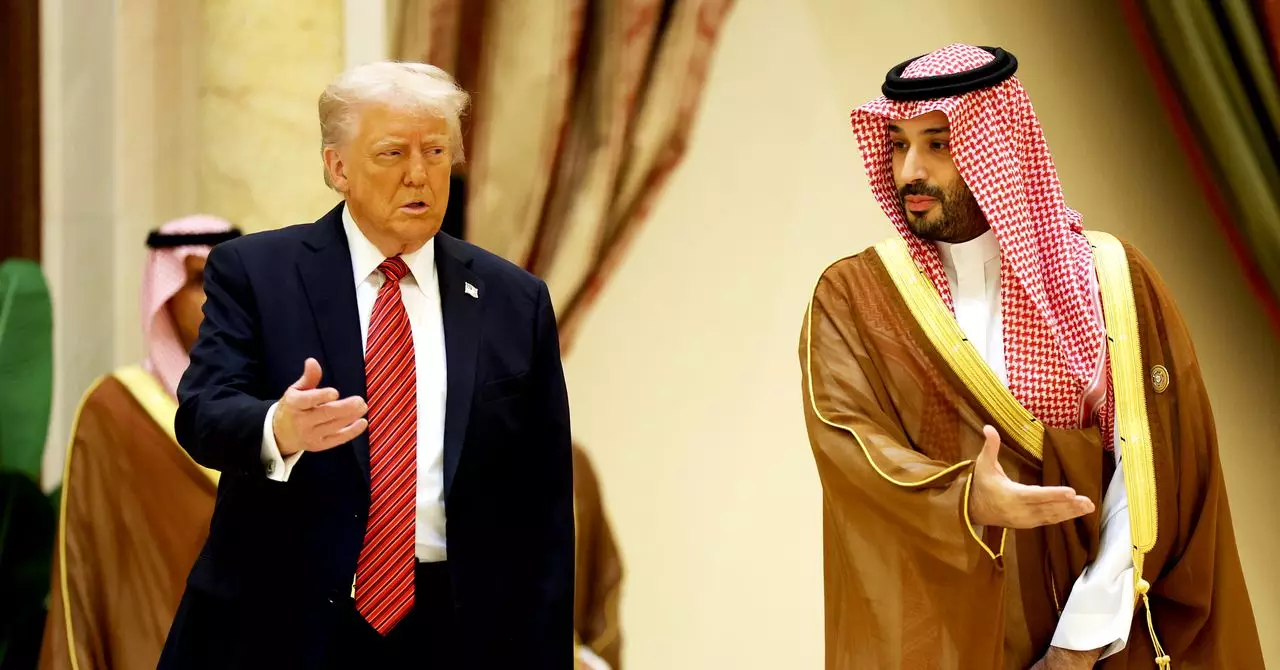In an unexpected yet intriguing twist, recent developments have placed the spotlight on the Middle East as a burgeoning hub for artificial intelligence (AI). The recent trip of former President Donald Trump to the region, marked by an impressive lineup of billionaire tech entrepreneurs and high-stakes business arrangements, has dramatically shifted the landscape of AI development and investment. This foray into the Middle East hints at a significant reconfiguration of global power dynamics in technology, particularly AI, with potentially sweeping implications for geopolitical relations and economic frameworks.
During his visit, Trump rolled out ambitious plans for collaboration between U.S. tech firms and their Emirati counterparts. His announcement of a partnership with G42, a prominent Emirati AI firm, outlines the creation of the largest AI datacenter cluster outside of the United States. By establishing five gigawatts of AI computing capacity in the UAE, this initiative not only showcases the capabilities of American tech giants but also highlights the strategic shift of the Middle East toward advanced technological investments.
The Sheikh’s Vision: AI for Humanity
Sheikh Tahnoon bin Zayed Al Nahyan, a pivotal figure in the UAE’s push to harness AI, heralded the collaboration as transformative for both the UAE’s aspirations and humanity at large. In a time when global attention is increasingly focused on sustainable development and technological advancements, the UAE’s positioning as a leader in AI research and infrastructure cannot be overstated. This veers away from traditional narratives that define the region primarily by its oil wealth, proposing instead a narrative steeped in innovation and high-tech ambitions.
However, this won’t merely bolster the UAE’s status; it will dramatically expand the role of Saudi Arabia in the AI race. With the establishment of Humain, an AI investment firm backed by Saudi Arabia’s Public Investment Fund, the country is making significant strides into the tech realm. Recent multibillion-dollar investment deals with titans like Nvidia and AWS represent not just financial transactions; they are strategic maneuvers designed to establish the kingdom as a central player in the global AI ecosystem.
The Geopolitical Stakes: A Dual-Edged Sword
While the growth of AI infrastructure in the Middle East heralds an era of monumental potential, it also raises questions regarding geopolitical alliances and rivalries. The collaboration between the U.S. and Middle Eastern nations, particularly in AI, is indicative of a broader ambition to corner the market on high-tech developments. Such efforts could prompt these nations to assert themselves more aggressively in the global tech landscape, creating a new competitive dynamic—particularly in relation to China, which has also invested heavily in technology in the region.
The renewed commitment from the U.S. to relax previous restrictions on chip exports to allies marks a significant policy shift. This change, intended to promote American innovation, offers Middle Eastern nations access to cutting-edge technology that could result in the development of frontier AI models. Yet, it also embroils them in a complex web of international relations, with their existing ties to China fostering a duality that may complicate future dealings.
The Financial Rationale: Harnessing Oil Wealth for Tech Investments
The financial implications of these developments are profound. With oil revenues pouring into high-tech investments, the Middle East is poised to redefine its economic framework away from reliance on oil. The convergence of immense capital, ambitious visions for advanced technologies, and growing demand for AI capabilities may allow countries like Saudi Arabia and the UAE to emerge as central nodes in the global tech arena. Their strategic investments in alliances with U.S. firms set the stage for an integrated, high-tech economy that challenges conventional notions of regional development.
Yet, this transition is fraught with challenges. The infrastructural demands required for such rapid growth necessitate not only financial investment but also substantial technological know-how and human capital. Without cultivating a skilled workforce capable of sustaining these advancements, the ambitious plans currently being laid may falter.
As the Middle East races to transform itself into a high-tech powerhouse, the world watches carefully. The strategic partnerships being formed today could yield profound consequences for tomorrow’s geopolitical landscape and economic stability. In this new realm of AI-driven innovation, the potential for both collaboration and confrontation looms large, ensuring that the stakes could not be higher.

